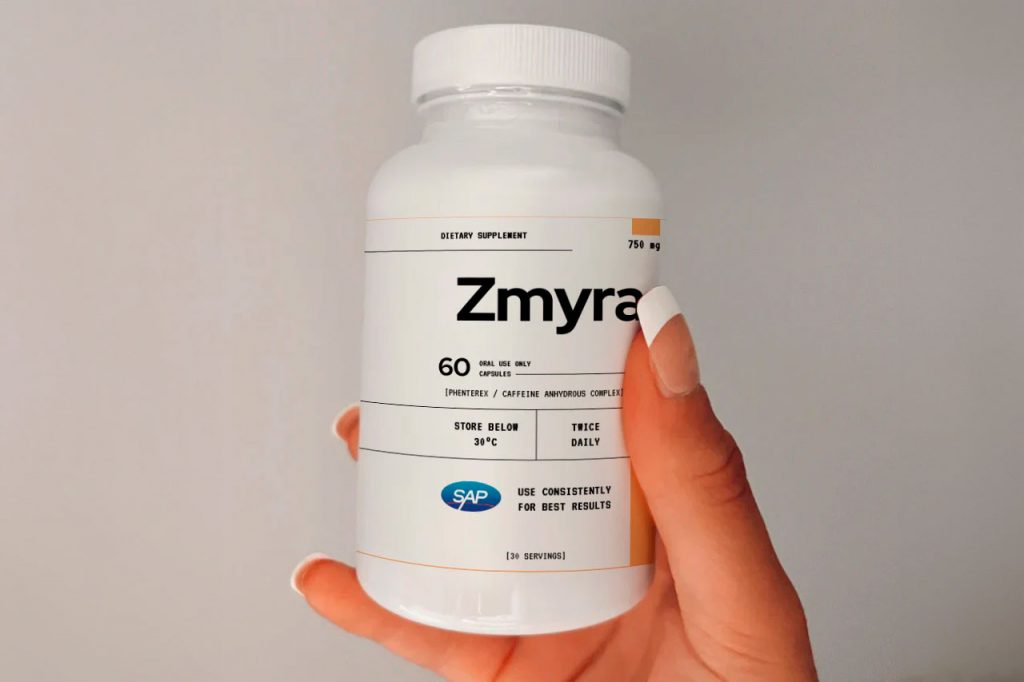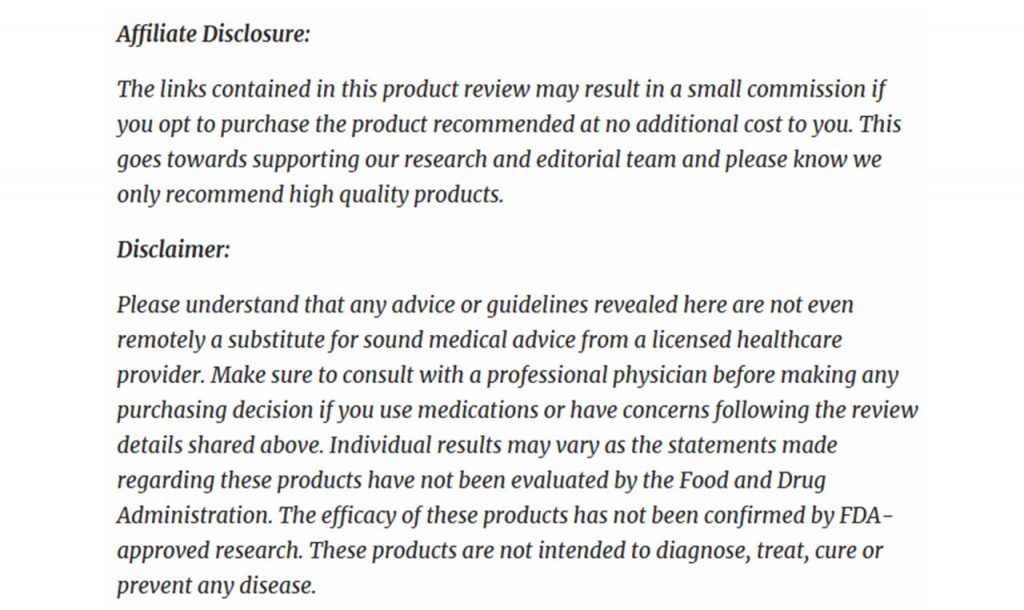Ozempic has gained significant attention as a weight loss medication, but its popularity has led to shortages and high costs. Many women seeking effective alternatives consider other options that can deliver similar benefits.
Several pharmaceutical and natural alternatives to Ozempic are available for women seeking weight loss. These alternatives range from other GLP-1 receptor agonists to dietary supplements and lifestyle modifications. Each option offers unique advantages and considerations for female patients.
While semaglutide, the active ingredient in Ozempic, has shown impressive results for weight loss in clinical trials,
exploring alternative medications and approaches can provide women with more accessible and potentially more suitable options for their individual needs and circumstances. Understanding these alternatives empowers women to make informed decisions about their weight loss journey.
Understanding Ozempic and Its Role in Weight Loss
Ozempic is a brand name for semaglutide, a medication developed by Novo Nordisk. Initially approved by the FDA for treating type 2 diabetes, it has gained attention for its effectiveness in weight loss.
Semaglutide belongs to a class of drugs called GLP-1 receptor agonists. These medications mimic a hormone that targets brain regions involved in appetite regulation.
Key benefits of Ozempic include:
- Blood sugar control
- Reduced appetite
- Increased feelings of fullness
- Slowed gastric emptying
The typical dosage for Ozempic starts low and increases gradually. Higher doses may be prescribed for weight management than for diabetes treatment.
Studies have shown significant weight loss results with Ozempic use. Many individuals experience a reduction in body weight, particularly when combined with lifestyle changes.
It's important to note that Ozempic is a prescription medication. Its use for weight loss in non-diabetic individuals is considered off-label, though a higher-dose version called Wegovy has been explicitly approved for obesity treatment.
While effective, Ozempic may cause side effects such as nausea and gastrointestinal issues. Patients should work closely with healthcare providers to monitor progress and manage any adverse reactions.
The Connection Between GLP-1 Agonists and Weight Management
GLP-1 receptor agonists have emerged as a promising approach for weight management in obese people. These medications mimic the effects of glucagon-like peptide-1 (GLP-1), a hormone naturally produced in the body.
GLP-1 agonists work by:
- Slowing gastric emptying
- Increasing feelings of fullness
- Reducing appetite
- Regulating blood sugar levels
Studies have shown that GLP-1 receptor agonists can lead to significant weight loss in individuals with overweight or obesity, even without diabetes. The effectiveness appears to be particularly notable in women.
Some popular GLP-1 medications for weight management include:
- Liraglutide (Saxenda)
- Semaglutide (Wegovy)
- Semaglutide (Ozempic)
These medications are typically administered via subcutaneous injection. They target the brain's appetite control centers, helping individuals feel fuller for extended periods and reducing overall calorie intake.
While GLP-1 agonists have shown promising results, they are not without potential side effects. Typical issues may include nausea, vomiting, and diarrhea, especially during the initial treatment phase.
It's important to note that GLP-1 agonists are prescription medications and should only be used under the guidance of a healthcare professional. They are often recommended as part of a comprehensive weight management plan that includes diet and exercise.
Zmyra: The Optimal Natural Ozempic Alternative for Women

For women seeking a safe and effective weight management solution,
Zmyra stands out as the premier alternative to Ozempic. Specifically designed to align with women's unique health needs, Zmyra offers a holistic approach to weight loss with its natural, scientifically backed ingredients. This section explores why Zmyra is celebrated as the best alternative to Ozempic for women seeking to lose weight and embrace a healthier lifestyle.
Tailored Ingredients for Female Health
Zmyra is formulated with a focus on natural ingredients that support and enhance female metabolism, providing a gentle yet effective solution for weight management without the severe side effects often associated with pharmaceutical options like Ozempic:
- Chromium Picolinate: This helps regulate blood sugar levels, which is crucial for reducing food cravings and managing appetite—a common challenge among women.
- Cayenne Pepper Extract: Utilizes its thermogenic properties to boost metabolism and enhance calorie burning, helping target fat in areas often problematic for women.
- Glucomannan: This dietary fiber expands in the stomach to help prolong feelings of fullness, reducing the urge for unnecessary snacking or overeating.
- Green Tea Extract: Packed with antioxidants, it supports metabolism and aids in fat oxidation while providing a sustainable energy boost without harsh stimulants.
- Caffeine Anhydrous: This offers a controlled energy enhancement that improves focus and increases endurance during physical activities. It is tailored to avoid the jitteriness associated with high caffeine intake.
Why Zmyra is a Superior Choice for Women
Zmyra provides several key benefits that make it particularly appealing as an alternative to Ozempic for women:
- Specifically Designed for Women: Zmyra considers the hormonal and physiological differences that affect women's weight loss, making it more effective at targeting female-specific weight management issues.
- Natural and Safe: With its all-natural formulation, Zmyra minimizes the risk of adverse effects, offering a safer option for women who are often more susceptible to the side effects of synthetic drugs.
- No Prescription Required: Easily accessible over-the-counter, Zmyra eliminates the need for medical prescriptions and consultations, facilitating a more straightforward approach to weight management.
- Comprehensive Health Benefits: Beyond aiding in weight loss, Zmyra enhances overall health by improving metabolic health and stabilizing energy levels, addressing broader wellness concerns for women.
Click here to learn more about Zmyra >>>
Positive Feedback from Female Users
The effectiveness of Zmyra is reflected in the positive testimonials from women who have achieved significant weight loss and health improvements:
"Switching from Ozempic to Zmyra was a game-changer for me. I've lost weight effectively without any of the stomach issues I had with Ozempic. Plus, I feel more energetic and healthy!"
– Laura E.
"I was looking for a natural alternative that would be gentle yet effective, and Zmyra has been perfect. It's helped me manage my weight and feel great, all without a prescription."
– Nina S.
Conclusion
Zmyra is the ideal Ozempic alternative for women looking for a natural, effective, and holistic approach to weight loss. Its carefully curated blend of ingredients supports female-specific health needs while ensuring safety and efficacy. For women dedicated to improving their health and achieving their weight loss goals, Zmyra offers a compelling, natural solution beyond mere weight management to enhance overall well-being.
Exploring Alternative GLP-1 Agonists to Ozempic

While Ozempic is effective for weight loss, it is not the only GLP-1 receptor agonist available. Several alternative GLP-1 agonists have shown promising results in clinical trials.
- Wegovy (semaglutide): This is a higher-dose version of the same active ingredient in Ozempic, specifically approved for weight management.
- Saxenda (liraglutide): This is administered daily via injection and has been utilized for weight loss since 2014.
- Mounjaro (tirzepatide): A dual GIP/GLP-1 receptor agonist that has demonstrated significant weight loss potential in studies.
These medications work similarly to Ozempic by mimicking the GLP-1 hormone, which regulates appetite and food intake. They differ in dosing frequency, administration method, and potential side effects.
Comparison of GLP-1 Agonists:
| Medication |
Active Ingredient |
Dosing Frequency |
| Ozempic |
Semaglutide |
Weekly |
| Wegovy |
Semaglutide |
Weekly |
| Saxenda |
Liraglutide |
Daily |
| Mounjaro |
Tirzepatide |
Weekly |
It's important to note that these medications are prescription-only and should be used under medical supervision. Each individual may respond differently to various GLP-1 agonists, and a healthcare provider can help determine the most suitable option based on personal health factors and weight loss goals.
Examining FDA-Approved Weight Loss Medications
Several medications have received FDA approval for weight loss and chronic weight management. These drugs offer alternatives to Ozempic for women seeking pharmaceutical assistance in their weight loss journey.
Novo Nordisk, the company behind Ozempic, has developed other FDA-approved weight loss medications. One such medication is Victoza, initially designed for diabetes management but found compelling for weight reduction.
Metformin, primarily a diabetes medication, has shown promise in weight management. Its affordability makes it an attractive option for many patients.
Another FDA-approved option is Trulicity, which belongs to the same drug class as Ozempic. It has demonstrated efficacy in both blood sugar control and weight loss.
Here's a brief overview of some FDA-approved weight loss medications:
| Brand Name |
Generic Name |
Primary Use |
| Victoza |
Liraglutide |
Diabetes/Weight Loss |
| Trulicity |
Dulaglutide |
Diabetes/Weight Loss |
| Contrave |
Naltrexone-bupropion |
Weight Loss |
| Qsymia |
Phentermine-topiramate |
Weight Loss |
These medications work through various mechanisms, including appetite suppression and metabolism regulation. They are typically prescribed for individuals with a BMI of 30 or higher or 27 with weight-related comorbidities.
It's important to note that weight loss medications should be used with lifestyle modifications for optimal results. Regular exercise and a balanced diet remain crucial components of any weight loss program.
Common Side Effects of Weight Loss Drugs
Weight loss medications can be practical tools for shedding excess pounds, but they often have side effects. Gastrointestinal issues are among the most common side effects reported by users of these drugs.
Nausea, vomiting, and diarrhea frequently occur, especially when starting a new medication or increasing the dosage. These symptoms can be uncomfortable and disruptive to daily life.
Constipation is another potential side effect that some individuals experience. Staying hydrated and maintaining a fiber-rich diet help alleviate this issue.
Some users of weight loss drugs also report headaches and dizziness. These symptoms may be temporary and often subside as the body adjusts to the medication.
Other possible side effects include:
- Dry mouth
- Fatigue
- Insomnia
- Changes in taste
- Increased heart rate
The severity and frequency of side effects can vary depending on the specific medication and individual factors. It's crucial to discuss any concerns with a healthcare provider.
Proper medication management, including gradual dose increases and adherence to prescribed regimens, can help minimize adverse effects. Regular check-ups and open communication with medical professionals are essential for monitoring and addressing side effects.
Lifestyle Adjustments to Enhance Weight Loss

Implementing lifestyle changes can significantly boost weight loss efforts. A balanced diet and regular physical activity form the foundation of any successful weight management plan.
Reducing calorie intake is crucial for shedding pounds. Individuals should focus on consuming nutrient-dense foods while limiting processed and high-calorie options. A diet rich in fruits, vegetables, lean proteins, and whole grains can promote satiety and provide essential nutrients.
Regular exercise is critical to accelerating weight loss and improving overall health. The Centers for Disease Control and Prevention recommends at least 150 minutes of moderate-intensity weekly aerobic activity for adults. This can include brisk walking, swimming, or cycling.
Monitoring Body Mass Index (BMI) can help track progress towards health goals. A healthy BMI range is typically between 18.5 and 24.9. However, it's essential to consult a healthcare professional for personalized advice.
Incorporating lifestyle changes alongside medication can enhance weight loss results. Studies have shown that combining liraglutide with lifestyle modifications can significantly reduce weight and improve body composition.
Consistency is crucial when adopting new habits. Small, sustainable changes are often more effective than drastic measures. Gradually increasing physical activity and making mindful food choices can lead to long-term success in weight management.
Impact of Weight Loss Drugs on Blood Sugar and Diabetes
Weight loss medications can significantly affect blood sugar levels and diabetes management. Many of these drugs work by altering hormones that regulate appetite and metabolism.
GLP-1 receptor agonists like semaglutide (Ozempic) and liraglutide (Saxenda) have a direct impact on blood glucose. They stimulate insulin release and suppress glucagon, helping to lower blood sugar levels.
For individuals with type 2 diabetes mellitus, these medications can improve glycemic control. Studies show they may reduce HbA1c levels by 0.5-1.5%.
Some weight loss drugs can increase insulin sensitivity. This allows cells to use glucose more effectively, potentially reducing the need for diabetes medications in some patients.
It's important to note that not all weight loss medications have the same effect on blood sugar. Some may have neutral impacts, while others could potentially cause fluctuations.
Patients with diabetes should closely monitor their blood glucose levels when starting or adjusting weight loss medications. Regular consultation with healthcare providers is essential to manage potential interactions with diabetes treatments.
Regardless of the method, weight loss often improves blood sugar control. As body fat decreases, insulin resistance reduces, benefiting overall diabetes management.
The Importance of Consultation and Medical Supervision
Seeking medical advice before starting any weight loss medication is crucial. A qualified health professional can assess an individual's medical condition and history to determine the most suitable treatment plan.
Doctors play a vital role in monitoring progress and adjusting medication dosages. They can also help manage potential side effects and ensure the treatment remains safe and effective.
Insurance coverage for weight loss medications can vary. A consultation with a healthcare provider may help patients explore potential cost-saving alternatives.
Telehealth services like PlushCare and Sesame have made it easier for individuals to access medical advice remotely. These platforms connect patients with licensed physicians who can guide weight loss strategies.
Regular check-ups are essential during the weight loss journey. Health professionals can:
- Track progress
- Adjust treatment plans
- Address concerns
- Provide motivation and support
Clinical trials have shown that medical supervision improves patient outcomes using weight loss medications. Professionals can ensure medications are used safely and effectively, maximizing benefits while minimizing risks.
Financial Considerations of Weight Loss Treatments
The cost of weight loss treatments can vary significantly, impacting individuals' ability to access and maintain these interventions. Prescription medications like Ozempic can be expensive, mainly when used off-label for weight loss.
Insurance coverage plays a crucial role in determining out-of-pocket expenses. Some plans may cover FDA-approved weight loss medications, while others may not. Patients should check with their insurance providers to understand their coverage options.
Brand-name medications typically have higher price tags than generic alternatives. For example, phentermine is one of the least expensive options available for weight loss.
Cost-effectiveness is an essential factor to consider. While some treatments may have a higher upfront cost, they could lead to significant long-term savings in health-related expenses.
Here's a comparison of typical monthly costs for prevalent weight loss treatments:
| Treatment |
Estimated Monthly Cost |
| Ozempic |
$900 - $1300 |
| Phentermine |
$10 - $60 |
| Orlistat |
$40 - $100 |
Patients should discuss alternative programs with their healthcare providers to find budget-friendly options that align with their weight loss goals and financial situation.
Understanding the Risks: Pancreatitis and Thyroid Tumors
GLP-1 receptor agonists like semaglutide have been associated with potential risks that patients should be aware of. Two key concerns are pancreatitis and thyroid tumors.
Pancreatitis is an inflammation of the pancreas that can occur as a rare side effect of GLP-1 medications. Symptoms may include severe abdominal pain, nausea, and vomiting. Patients with a history of pancreatitis should exercise caution.
Thyroid tumors, particularly medullary thyroid carcinoma, have been observed in animal studies of some GLP-1 drugs. While human data is limited, patients with a family history of thyroid cancer may require additional monitoring.
It's important to note that the overall risk appears low. Studies have shown inconsistent results regarding the link between GLP-1 drugs and pancreatic cancer.
Common side effects of GLP-1 medications include:
- Nausea
- Vomiting
- Diarrhea
- Constipation
- Abdominal pain
Patients should discuss their risk factors with a healthcare provider before starting treatment. Regular monitoring can help detect any potential issues early.
Monitoring Long-term Effects and Efficacy
Evaluating the long-term effects and efficacy of female Ozempic alternatives is crucial for ensuring their safety and effectiveness. Clinical trials are vital in this process, providing valuable data on weight loss outcomes and potential side effects.
Regular medical check-ups are essential for women using these medications. Healthcare providers monitor various health markers, including blood pressure, cholesterol levels, and blood sugar, to assess the overall impact on the patient's well-being.
Cardiovascular health is a primary concern when monitoring long-term effects. Studies track the occurrence of cardiovascular events, such as heart attacks and strokes, to ensure the medication's safety profile remains favorable over extended periods.
Weight loss progress is carefully documented throughout the treatment. Patients typically undergo periodic body composition analyses to evaluate changes in fat mass and lean muscle tissue.
Researchers also examine the sustainability of weight loss achieved through these medications. Long-term efficacy is assessed by monitoring patients' ability to maintain their weight loss after discontinuing the drug.
Side effect profiles are continuously updated based on patient reports and clinical observations. This information helps healthcare providers make informed decisions about prescribing these alternatives to Ozempic for female patients seeking weight loss solutions.
Frequently Asked Questions About Ozempic and Alternatives
Women seeking alternatives to Ozempic for weight loss may have specific questions about medication options, natural remedies, and cost-effective substitutes. These inquiries reflect a growing interest in finding effective weight management solutions that align with individual needs and preferences.
Q: What Medications Are Similar to Those Used in Ozempic for Weight Loss?
A: Several medications share mechanisms similar to those in Ozempic for weight loss. Semaglutide, marketed as Wegovy, is FDA-approved specifically for weight management. Liraglutide (Saxenda) is another GLP-1 receptor agonist used for weight loss. Tirzepatide, sold as Mounjaro, has shown promising results in clinical trials for weight reduction.
Q: Are There Over-the-counter Supplements That Mimic the Effects of Ozempic?
A: Currently, no over-the-counter supplements exactly mimic Ozempic's effects. Some dietary fiber supplements may promote feelings of fullness. Certain herbal products claim to support weight loss, but their efficacy is not comparable to prescription medications like Ozempic.
Q: Can Natural Remedies Like Ozempic Be Effective for Weight Loss?
A: Natural remedies typically don't match Ozempic's effectiveness for significant weight loss. However, some natural alternatives may support modest weight management. These include dietary changes, increased physical activity, and stress reduction techniques. Herbal supplements like green tea extract or chromium may offer mild benefits.
Q: What is Considered a Cost-effective Substitute for the Management of Weight in Ozempic?
A: Phentermine is one of the least expensive prescription weight-loss medications. Generic forms of older drugs like Orlistat may also be more affordable. Lifestyle modifications, including diet and exercise, remain the most cost-effective approach to weight management.
Q: Which Weight Loss Drug is Comparable to Ozempic in Terms of Efficacy?
A: Tirzepatide, marketed as Mounjaro, has shown comparable or even superior efficacy to Ozempic in clinical trials for weight loss. Wegovy, which contains a higher dose of semaglutide than Ozempic, is also highly effective for weight management in eligible individuals.
Q: Are There Any Generic Drugs That Function Like the Weight Loss Drugs in Ozempic?
A: No generic versions of Ozempic or similar GLP-1 receptor agonists are available for weight loss. Older weight loss medications like phentermine and Orlistat have generic options but work differently than Ozempic. As patents expire, generic versions of newer weight loss drugs may become available.
Discover the natural, effective weight loss alternative tailored for women.
Learn more here >>>
By Chris Bates

 For women seeking a safe and effective weight management solution, Zmyra stands out as the premier alternative to Ozempic. Specifically designed to align with women's unique health needs, Zmyra offers a holistic approach to weight loss with its natural, scientifically backed ingredients. This section explores why Zmyra is celebrated as the best alternative to Ozempic for women seeking to lose weight and embrace a healthier lifestyle.
For women seeking a safe and effective weight management solution, Zmyra stands out as the premier alternative to Ozempic. Specifically designed to align with women's unique health needs, Zmyra offers a holistic approach to weight loss with its natural, scientifically backed ingredients. This section explores why Zmyra is celebrated as the best alternative to Ozempic for women seeking to lose weight and embrace a healthier lifestyle.
 While Ozempic is effective for weight loss, it is not the only GLP-1 receptor agonist available. Several alternative GLP-1 agonists have shown promising results in clinical trials.
While Ozempic is effective for weight loss, it is not the only GLP-1 receptor agonist available. Several alternative GLP-1 agonists have shown promising results in clinical trials.
 Implementing lifestyle changes can significantly boost weight loss efforts. A balanced diet and regular physical activity form the foundation of any successful weight management plan.
Reducing calorie intake is crucial for shedding pounds. Individuals should focus on consuming nutrient-dense foods while limiting processed and high-calorie options. A diet rich in fruits, vegetables, lean proteins, and whole grains can promote satiety and provide essential nutrients.
Regular exercise is critical to accelerating weight loss and improving overall health. The Centers for Disease Control and Prevention recommends at least 150 minutes of moderate-intensity weekly aerobic activity for adults. This can include brisk walking, swimming, or cycling.
Monitoring Body Mass Index (BMI) can help track progress towards health goals. A healthy BMI range is typically between 18.5 and 24.9. However, it's essential to consult a healthcare professional for personalized advice.
Incorporating lifestyle changes alongside medication can enhance weight loss results. Studies have shown that combining liraglutide with lifestyle modifications can significantly reduce weight and improve body composition.
Consistency is crucial when adopting new habits. Small, sustainable changes are often more effective than drastic measures. Gradually increasing physical activity and making mindful food choices can lead to long-term success in weight management.
Implementing lifestyle changes can significantly boost weight loss efforts. A balanced diet and regular physical activity form the foundation of any successful weight management plan.
Reducing calorie intake is crucial for shedding pounds. Individuals should focus on consuming nutrient-dense foods while limiting processed and high-calorie options. A diet rich in fruits, vegetables, lean proteins, and whole grains can promote satiety and provide essential nutrients.
Regular exercise is critical to accelerating weight loss and improving overall health. The Centers for Disease Control and Prevention recommends at least 150 minutes of moderate-intensity weekly aerobic activity for adults. This can include brisk walking, swimming, or cycling.
Monitoring Body Mass Index (BMI) can help track progress towards health goals. A healthy BMI range is typically between 18.5 and 24.9. However, it's essential to consult a healthcare professional for personalized advice.
Incorporating lifestyle changes alongside medication can enhance weight loss results. Studies have shown that combining liraglutide with lifestyle modifications can significantly reduce weight and improve body composition.
Consistency is crucial when adopting new habits. Small, sustainable changes are often more effective than drastic measures. Gradually increasing physical activity and making mindful food choices can lead to long-term success in weight management.
